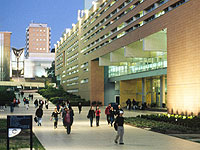Ethnic and Religious Minorities in Modern Europe - ARTS2786
Faculty: Faculty of Arts and Social Sciences
School: School of Humanities and Languages
Course Outline: School of Humanities & Languages
Campus: Sydney
Career: Undergraduate
Units of Credit: 6
EFTSL: 0.12500 (more info)
Indicative Contact Hours per Week: 3
Enrolment Requirements:
Prerequisite: 30 units of credit at Level 1
CSS Contribution Charge: (more info)
Tuition Fee: See Tuition Fee Schedule
Further Information: See Class Timetable
Available for General Education: Yes (more info)
View course information for previous years.
Description
Subject Area: European Studies
This course can also be studied in the following specialisation: History
The course focuses on interethnic and interfaith relations in Europe in the last two centuries, following the gradual secularization of European societies after the French revolution. Students will develop an understanding of the historical developments that led to the ethnic and cultural diversities in contemporary European societies. Students will discuss selected case studies which will introduce them to the complexities of interethnic and interfaith co-existence in Europe during the two centuries after the birth of liberalism and tolerance at the end of the 18th century and during and after the rise of ethnic nationalism in the 19th century. With the help of primary and secondary sources, the students will analyse the mutual ideological, social and cultural perceptions and constructions of ‘otherness’ between the minorities and the majority societies. Students will acquire an in-depth knowledge of key issues, developments and examples from the French revolution through to the present, including the Emancipation of the Jews in the 19th century, the Pale of Settlement, anti-Semitism, Church relations to minorities, modern Ukraine, Romani minorities, the Balkans, Muslim minorities in contemporary Western Europe and Chechnya.









